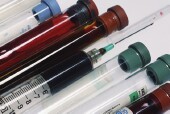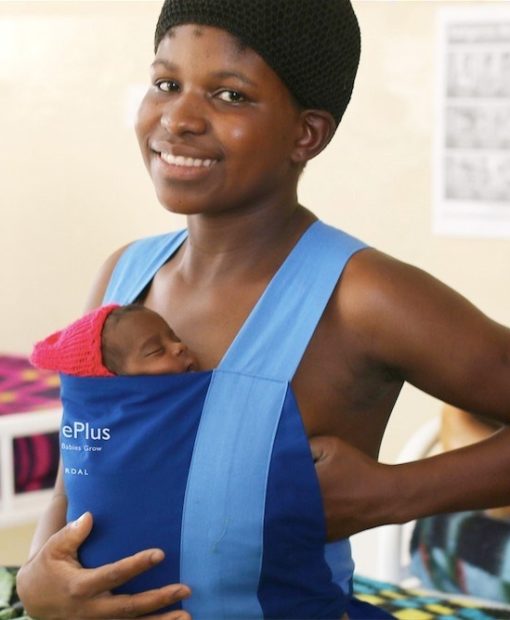Newer Test for Down Syndrome Called ‘Major Advance’

WEDNESDAY, April 1, 2015 (HealthDay News) — A DNA-based blood test appears to be more effective in detecting possible Down syndrome in unborn children than other screening methods for the genetic disorder, researchers say.
The test exhibited perfect accuracy in a clinical trial, detecting Down syndrome in all 38 women whose children had inherited the disorder, the researchers report in the April 2 issue of the New England Journal of Medicine.
By comparison, standard screening methods only detected Down syndrome in 30 of the 38 expecting mothers, the study authors said.
In the test, clinicians analyze fetal DNA circulating freely in a pregnant woman’s bloodstream. Greater quantities of fetal DNA — also called cell-free DNA — in a woman’s blood are an indication that her unborn child suffers from Down syndrome, the researchers said.
“It is clearly a better test than what we’re currently using,” said study lead author Dr. Mary Norton, a professor and vice chair of clinical and translational genetics at the University of California, San Francisco. “If one is looking at screening specifically for Down syndrome, there’s no question this test is better for that purpose.”
Despite its accuracy, experts warn that mothers should follow up any positive result with an invasive diagnostic test such as amniocentesis before making any decisions regarding their pregnancy.
“Nobody wants a needle in their uterus when they can get a blood test, but that’s just not the way it works in 2015,” said Dr. Joe Leigh Simpson, senior vice president of research and global programs at the March of Dimes. “This [new test] is a major advance, but you’re still going to have to confirm the results.”
Simpson compared a positive result in a cell-free DNA test to a positive cancer screen. “We’re not going to be treated for cancer on the basis of an X-ray. We’re going to have a biopsy to find out what the situation actually is,” he said.
Down syndrome occurs when a baby has an extra copy of chromosome 21 in its DNA. The birth defect can cause physical and intellectual disabilities, as well as lifelong health problems.
Up to now, screening for Down syndrome has involved an earlier blood test and an ultrasound, the U.S. Centers for Disease Control and Prevention says. The blood test looks for patterns of various substances in a mother’s blood that are associated with chromosomal problems that lead to Down syndrome, while the ultrasound examines the fetus for indications of birth defects.
The new clinical trial compared this screening method to the cell-free DNA screening test, which takes place at 10 to 14 weeks of pregnancy and has been available since 2011.
Earlier studies of cell-free DNA screening focused on older women believed to be at higher risk for birth defects, but this trial followed more than 15,000 women with an average age of 31. One-quarter were over 35, the age at which women traditionally have been considered high risk.
Besides its strong accuracy, the cell-free DNA test also had a much lower false-positive rate than standard screening — 0.06 percent versus 5.4 percent with standard screening, the study authors said.
“There’s no question that cell-free DNA for screening for Down syndrome is a better mousetrap,” Simpson said.
The test does have drawbacks, however.
Because it is focused specifically on Down syndrome, the cell-free DNA screening test can overlook indications of other types of birth defects detected by traditional screening methods, Norton said.
The test also won’t work properly for pregnant women without enough fetal DNA floating in their bloodstream.
Obese women, in particular, are less likely to have enough free-floating fetal DNA, Norton said.
The test also can be fooled if a mother has an excessive amount of fetal DNA from some other source, like an undiagnosed cancer or a twin that has died in utero, Simpson said.
Sara Weir, president of the National Down Syndrome Society, noted an even broader concern with both the cell-free DNA test and other blood screening tests for birth defects — they aren’t regulated by the U.S. Food and Drug Administration, but by an arm of the Centers for Medicare and Medicaid Services.
“The FDA is the gold standard for regulating drugs, diagnostics and other devices, and we would like to see these tests regulated by the FDA,” Weir said. “We are worried that women are going to make decisions on maintaining their pregnancy based on false positives. It needs to be better regulated.”
The clinical trial was funded, in part, by Ariosa Diagnostics, manufacturer of a cell-free DNA prenatal screen.
More information
For more on Down syndrome, visit the National Down Syndrome Society.

 April 2, 2015
April 2, 2015




 June 26, 2017
June 26, 2017 



